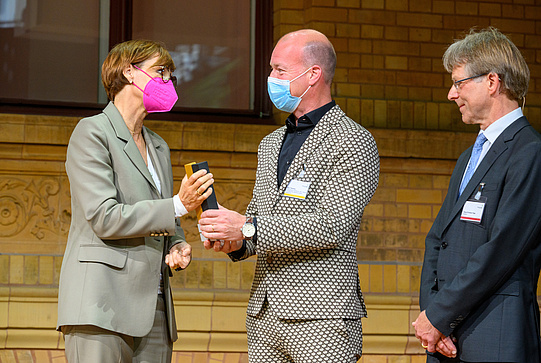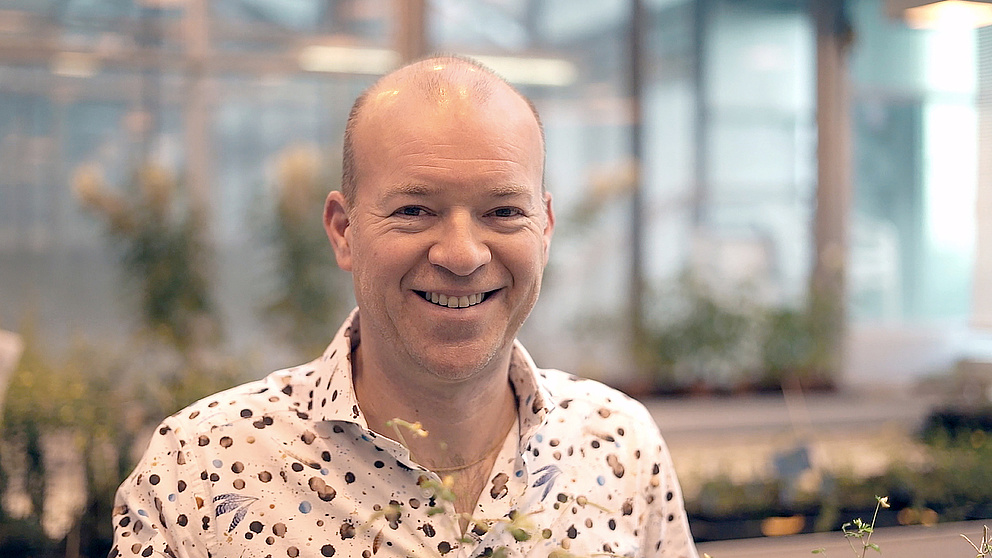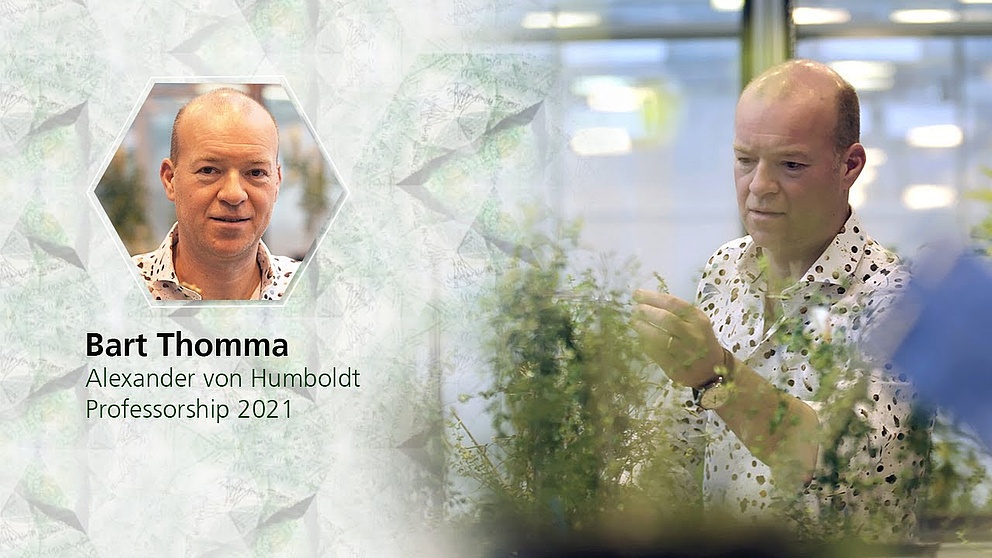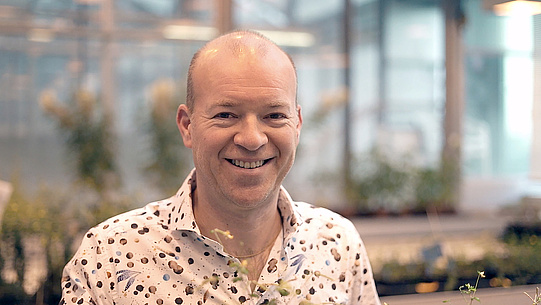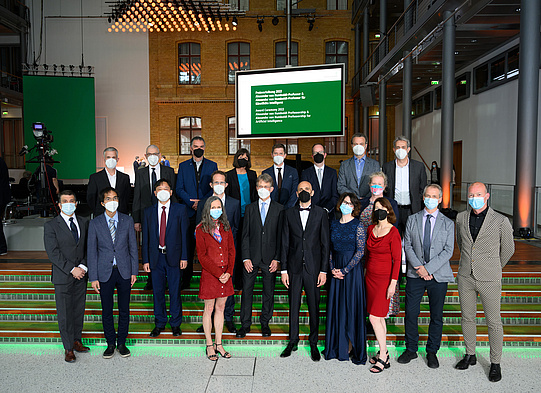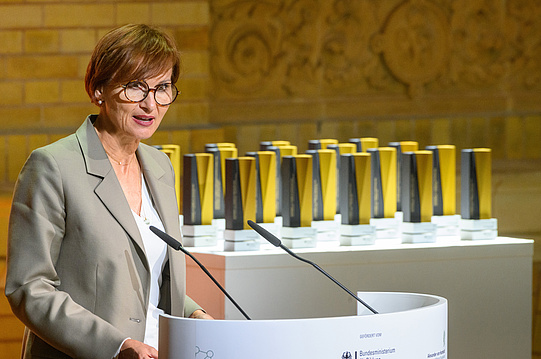Jump to the content
- {{#headlines}}
- {{title}} {{/headlines}}

Kontakt
Presse, Kommunikation und Marketing
Tel.: +49 228 833-144
Fax: +49 228 833-441
presse[at]avh.de
Microbiology
Our soil is more than just dark, crumbly earth. It is home to innumerable microorganisms. How they develop, reproduce and impact on plants is crucial for agriculture. Bart Thomma studies microscopic soil fungi that attack plants and cause disease. But how do these fungi manage to outwit the plants’ defensive mechanisms? In order to answer this question, Thomma examines the fungi’s genes and proteins. His aim is to develop innovative strategies to combat the plant diseases cause by fungi.
The evolution of the ascomycete fungus Verticillium dahliae is one focus of his work. This fungus can attack a particularly large number of crop plants from potatoes, tomatoes and strawberries through to fruit trees and other shrubs. It suppresses their immune system and disrupts the plant’s water supply so that green leaves turn pale and limp. Moreover, the fungus uses a special mechanism to reproduce, constantly combining its genetic material in new ways despite reproducing asexually.
Brief bio
Prof. Dr. Bart Thomma is Dutch. He completed his doctorate in biology at KU Leuven, Belgium, in 2000, subsequently working there as a postdoc. In 2003, he relocated to Wageningen University in the Netherlands, achieving outstanding results in research and teaching that brought him an assistant professorship in 2006. In 2009, he became a tenured associate professor and after a further four years, a full professor. In the course of his career, Thomma has received high-ranking Dutch funding. His work has also gained him international recognition, amongst others from the British Society for Plant Pathology that awarded him the RKS Wood Prize for excellent science in the study of plant disease pathology in 2018. In August 2020 he took up his position as a Humboldt Professor at the University of Cologne.
Photos and Films
